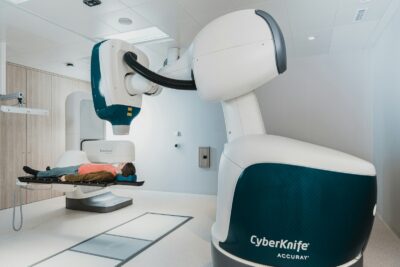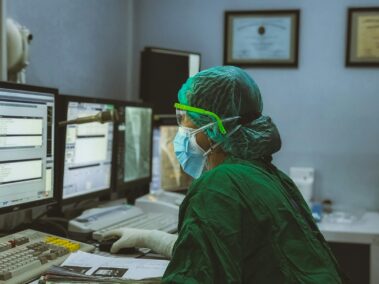The Role of Nanotechnology in Advancing Personalized Medicine
Introduction to Nanotechnology in Personalized Medicine
Nanotechnology in personalized medicine is transforming the healthcare landscape, offering unprecedented opportunities for precision treatment and enhanced patient outcomes. By leveraging the unique properties of nanoparticles, scientists and medical professionals can develop targeted therapies that cater to the individual needs of patients, ensuring more effective and less invasive treatments. This innovative approach is particularly relevant in regions such as Saudi Arabia and the UAE, where cutting-edge healthcare initiatives are rapidly gaining traction.
In Saudi Arabia, the government’s Vision 2030 initiative emphasizes the importance of advancing healthcare technologies, including nanotechnology. Riyadh, the capital city, is home to several research institutions dedicated to exploring the potential of nanotechnology in medicine. These efforts are paving the way for more personalized and efficient healthcare solutions, aligning with the country’s broader goals of economic diversification and technological innovation.
Similarly, in the UAE, Dubai’s status as a global hub for innovation and technology makes it a prime location for the development and implementation of nanotechnology in personalized medicine. The city’s strategic investments in healthcare infrastructure and research are driving significant advancements in this field, contributing to better health outcomes for patients and positioning the UAE as a leader in medical innovation.
The Impact of Nanotechnology on Patient Treatment
Nanotechnology’s impact on patient treatment is profound, offering new avenues for diagnosis, drug delivery, and therapy. One of the most significant advantages of nanotechnology in personalized medicine is its ability to target specific cells or tissues, minimizing damage to healthy cells and reducing side effects. This targeted approach is particularly beneficial in the treatment of complex diseases such as cancer, where conventional therapies often fall short.
For example, researchers in Saudi Arabia are developing nanoparticle-based drug delivery systems that can precisely deliver chemotherapy drugs to cancer cells, sparing healthy tissue and reducing adverse effects. This innovation not only improves the efficacy of treatment but also enhances the quality of life for patients undergoing cancer therapy. Such advancements highlight the potential of nanotechnology to revolutionize patient care and drive significant improvements in health outcomes.
In the UAE, nanotechnology is also being explored for its potential to improve diagnostic accuracy. Nanoparticles can be engineered to detect specific biomarkers associated with various diseases, enabling earlier and more accurate diagnoses. This capability is crucial for conditions like cardiovascular diseases and diabetes, which are prevalent in the region. By facilitating early detection and intervention, nanotechnology can help mitigate the impact of these diseases and improve patient prognoses.
Nanotechnology and Change Management in Healthcare
The integration of nanotechnology into personalized medicine requires effective change management strategies to ensure successful implementation and adoption. For healthcare organizations in Saudi Arabia and the UAE, this involves addressing several key challenges, including regulatory compliance, workforce training, and stakeholder engagement.
Change management is critical in navigating the regulatory landscape, as the introduction of nanotechnology-based treatments must comply with stringent safety and efficacy standards. In Saudi Arabia, regulatory bodies such as the Saudi Food and Drug Authority (SFDA) play a pivotal role in overseeing the approval and monitoring of new medical technologies. Healthcare organizations must work closely with these regulators to ensure that nanotechnology-based treatments meet all necessary requirements and are safe for patient use.
Workforce training is another essential component of change management in this context. Healthcare professionals need to be equipped with the knowledge and skills to effectively utilize nanotechnology in patient care. In Riyadh, institutions like King Saud University are offering specialized training programs to prepare the next generation of healthcare providers for the challenges and opportunities presented by nanotechnology. These initiatives are crucial for building a competent and capable workforce that can drive the successful adoption of personalized medicine.
Engaging stakeholders, including patients, healthcare providers, and policymakers, is also vital for the successful integration of nanotechnology. In Dubai, efforts to raise awareness about the benefits of nanotechnology in personalized medicine are helping to build support for these innovations. By fostering a collaborative environment, stakeholders can work together to overcome obstacles and ensure that the potential of nanotechnology is fully realized.
Leadership and Management Skills for Navigating Technological Advancements
Effective leadership and management skills are essential for navigating the rapid technological advancements in healthcare, including the integration of nanotechnology. Leaders in the healthcare sector must be able to adapt to change, inspire their teams, and drive innovation to stay competitive in a fast-evolving industry.
In Saudi Arabia, executive coaching services are playing a crucial role in developing these leadership skills. By providing tailored guidance and support, executive coaches help healthcare leaders enhance their strategic thinking, decision-making, and communication abilities. This, in turn, enables them to effectively manage the complexities associated with the adoption of new technologies like nanotechnology and ensure successful outcomes for their organizations.
Similarly, in the UAE, management consulting firms are assisting healthcare leaders in navigating the challenges of technological integration. These firms offer expertise in change management, organizational development, and process optimization, helping healthcare organizations in Dubai and beyond to implement nanotechnology-based solutions effectively. By leveraging the insights and experience of management consultants, healthcare leaders can drive meaningful change and achieve their strategic objectives.
The Role of Artificial Intelligence and Blockchain in Personalized Medicine
Artificial Intelligence (AI) and blockchain technologies are also playing a pivotal role in advancing personalized medicine, complementing the benefits of nanotechnology. AI, in particular, is enhancing the ability to analyze complex medical data and develop personalized treatment plans based on individual patient profiles.
In Saudi Arabia, AI is being integrated into healthcare systems to improve diagnostic accuracy and treatment efficacy. By leveraging machine learning algorithms, healthcare providers can analyze vast amounts of data to identify patterns and predict patient outcomes. This capability is particularly valuable in personalized medicine, where tailored treatment plans are essential for achieving optimal results. The combination of AI and nanotechnology offers a powerful tool for enhancing patient care and driving innovation in the medical field.
Blockchain technology, on the other hand, is providing a secure and transparent platform for managing patient data. In the UAE, blockchain is being used to ensure the integrity and confidentiality of medical records, enabling seamless and secure data sharing between healthcare providers. This is particularly important in personalized medicine, where accurate and up-to-date patient information is crucial for developing effective treatment plans. By integrating blockchain with nanotechnology, healthcare organizations can enhance data security and improve patient outcomes.
Conclusion: Embracing the Future of Personalized Medicine
In conclusion, the integration of nanotechnology in personalized medicine represents a significant leap forward in healthcare innovation. Saudi Arabia and the UAE are at the forefront of this revolution, leveraging their strategic investments in research, infrastructure, and talent development to drive advancements in this field. The impact of nanotechnology on patient treatment, change management, and leadership in healthcare is profound, offering new opportunities for precision medicine and improved health outcomes.
As AI and blockchain continue to complement the benefits of nanotechnology, the future of personalized medicine looks promising. By embracing these technological advancements and fostering a collaborative environment, healthcare organizations in Riyadh, Dubai, and beyond can navigate the complexities of change and deliver exceptional care to their patients. The journey towards personalized medicine is a testament to the power of innovation and the unwavering commitment to improving human health.
—
#Nanotechnology #PersonalizedMedicine #HealthcareInnovation #SaudiArabia #UAE #Riyadh #Dubai #AIinHealthcare #Blockchain #Leadership #ManagementConsulting #ExecutiveCoaching #ChangeManagement























